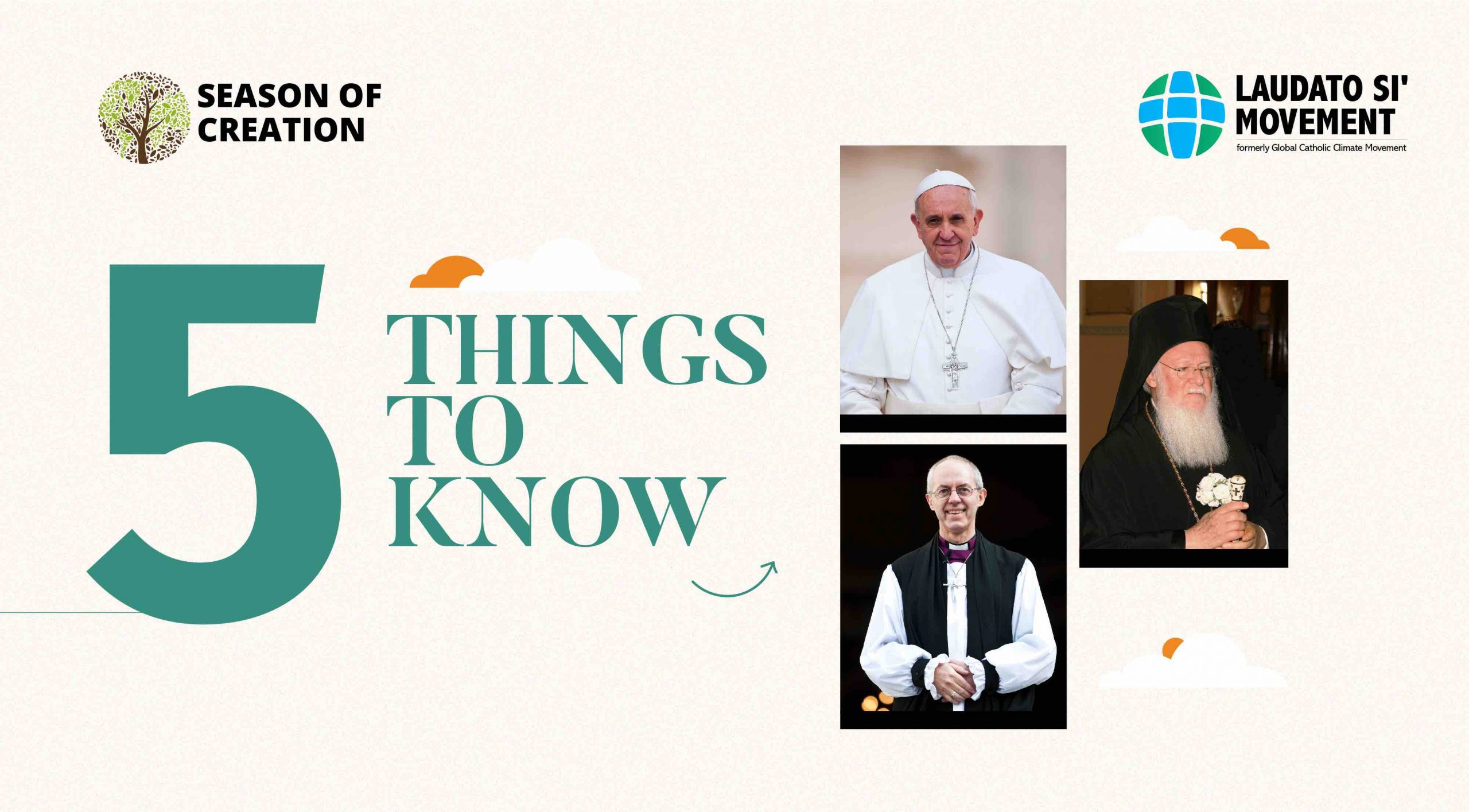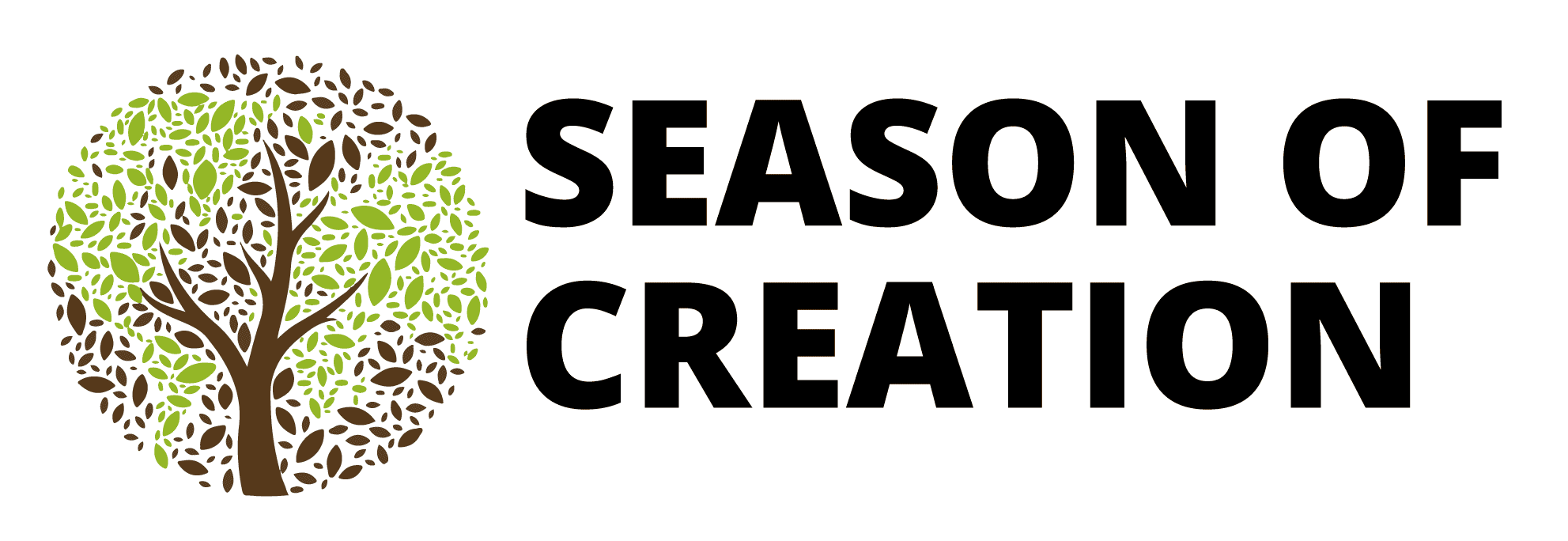
To help launch the Season of Creation, Pope Francis, Ecumenical Patriarch Bartholomew, and Justin Welby, Archbishop of Canterbury, issued a historic joint statement.
The first-ever message from the three faith leaders calls on all Christians and their communities to address the “unprecedented threat of climate change and environmental degradation.”
Why is it so significant, and what should we do now? Here are five things to know about their historic message.
1. The Season of Creation is an opportunity to create real change in the world.
The Season of Creation is the annual Christian celebration of prayer and action for our common home. The season started 1 September, the World Day of Prayer for the Care of Creation, and ends 4 October, the Feast Day of St. Francis of Assisi, the patron saint of ecology beloved by many Christian denominations.
Take action during the Season of Creation by signing the “Healthy Planet, Healthy People” petition
The leaders wrote that this special time of the year is an opportunity to change our ways and never look back. Weeks ahead of the 26th United Nations Climate Change Conference, Christians have an opportunity to advocate and create real change for our common home during the ecumenical season.
“May we not waste this moment. We must decide what kind of world we want to leave to future generations,” the leaders wrote.
“As world leaders prepare to meet in November at Glasgow to deliberate on the future of our planet, we pray for them and consider what the choices we must all make. Accordingly, as leaders of our Churches, we call on everyone, whatever their belief or worldview, to endeavour to listen to the cry of the Earth and of people who are poor, examining their behaviour and pledging meaningful sacrifices for the sake of the earth which God has given us.”
Lead your community by registering an event for the Season of Creation
2. Despite past sins, we still have an opportunity to do right by God’s creation.
Citing Scripture, the leaders recalled how our common Christian tradition invites us to practice “stewardship—of individual and collective responsibility for our God-given endowment.”
But we have erred in our ways. “We have maximized our own interest at the expense of future generations. By concentrating on our wealth, we find that long-term assets, including the bounty of nature, are depleted for short-term advantage,” the leaders wrote.
Yet all is not lost. As the recent United Nations report made clear, we still have time to reach the goals of the historic Paris climate agreement.
The leaders wrote: “Now, in this moment, we have an opportunity to repent, to turn around in resolve, to head in the opposite direction. We must pursue generosity and fairness in the ways that we live, work and use money, instead of selfish gain.”
3. Climate change is a moral and life issue.
The leaders reminded all of us that the ecological crisis and climate emergency are moral and life issues. If you support life, you work against the climate crisis.
“God mandates: ‘Choose life, so that you and your children might live’ (Dt 30:19). We must choose to live differently; we must choose life.”
Take action during the Season of Creation by signing the “Healthy Planet, Healthy People” petition
As Pope Francis did so powerfully in Laudato Si’, the three leaders highlight how the climate crisis disproportionately affects the most vulnerable among us. These are members of God’s creation who have had little to do with the greenhouse gas emissions scientists say are causing the climate emergency, yet endure its worst effects.
“We serve a God of justice, who delights in creation and creates every person in God’s image, but also hears the cry of people who are poor. Accordingly, there is an innate call within us to respond with anguish when we see such devastating injustice,” the leaders wrote.
4. Emerging from these crises requires deeper cooperation among all Christians.
The leaders point out how the world is battling ongoing crises, including the climate emergency, the COVID-19 pandemic, world hunger, economic suffering, among others.
The way forward involves seizing this opportunity “through renewed global co-responsibility and a new solidarity,” which involves changes for all.
“Each of us, individually, must take responsibility for the ways we use our resources. This path requires an ever-closer collaboration among all churches in their commitment to care for creation. Together, as communities, churches, cities and nations, we must change route and discover new ways of working together to break down the traditional barriers between peoples, to stop competing for resources and start collaborating.”
5. All of us are needed.
The three Christian leaders didn’t limit their special Season of Creation appeal to Christians; they invited all people and institutions to do their part.
“Together, on behalf of our communities, we appeal to the heart and mind of every Christian, every believer and every person of good will,” they wrote.
“All of us—whoever and wherever we are—can play a part in changing our collective response to the unprecedented threat of climate change and environmental degradation.
“Caring for God’s creation is a spiritual commission requiring a response of commitment. This is a critical moment. Our children’s future and the future of our common home depend on it.”
More about the 2021 Season of Creation
